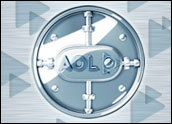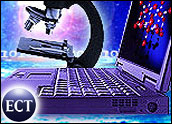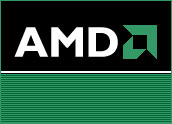
Going green is becoming an increasingly important initiative to many companies these days, but some are going above and beyond to please Mother Nature.
In July, the Green Electronics Council recognized more than 60 desktop computers, laptops and monitors from Dell, HP and other manufacturers for meeting new green standards and registering their equipment with the Electronic Products Environmental Assessment Tool database.
Compared to traditional computer equipment, all EPEAT-registered computer devices have reduced levels of lead, mercury and cadmium to better protect the health of individuals as well as the environment. They are also more energy-efficient — which reduces their emissions of climate-changing greenhouse gases — and are easier to upgrade and recycle.
“Making products more energy-efficient doesn’t necessarily require more effort or more resources, it really is just a change in the design methodology,” Jim McGregor, principal analyst at In-Stat, told TechNewsWorld. “For a computing standpoint, [reducing power] is the key topic driving future designs of everything from microprocessors to LCDs. We are no longer in the performance age of computing, we are now in the efficiency age.”
Getting companies to manufacture more environmentally preferable products is much easier with EPEAT, Jeff Omelchuck, executive director of the Green Electronics Council, told TechNewsWorld. Already more than US$32 billion worth of computer-related purchasing references EPEAT. “When you pile $32 billion on a table and announce that you want to buy more environmentally preferable products meeting the EPEAT standard, manufacturers tend to respond,” he said.
Demonstrated Leadership
Apple, CTL, Dell and HP have demonstrated their environmental leadership by designing and building better products and registering them with EPEAT, according to Omelchuck. “Other companies appear to be doing wonderful things, but they have not yet publicly demonstrated those commitments by registering products on the EPEAT database,” he said. “That is the real value of EPEAT — it is the ultimate antidote to greenwashing. By creating a searchable database of products and environmental attributes, it makes it very easy to compare products and identify the true leaders.”
Dell, for one, has led the industry in several areas of environmental responsibility, including focusing on energy efficiency, end-of-life product recovery and the reduction and elimination of environmentally sensitive materials.
As of the launch of the EPEAT tool on July 21, Dell has registered 28 EPEAT-compliant products, including select OptiPlex desktops, Precision workstations — both desktop and mobile versions — Latitude notebooks and flat panel monitors.
The company’s chemical-use policy outlines Dell’s precautionary approach to selecting substances to use or eliminate from product design, and includes a commitment to phase-out the use of PVC, and other brominated flame retardants, in its products by 2009.
Dell also offers products with power-management features that increase energy-conservation options for customers. For example, the company estimates that its new ninth-generation PowerEdge servers can lower power consumption by up to 25 percent, providing increased performance per watt of electricity.
“It is worth reducing power in electronic systems because now it has an impact on the user experience through battery life, fan noise, power consumption [and] heat dissipation,” McGregor said.
In 2005, Dell recovered more than 18 million kilograms of used equipment from customers for reuse or recycling, and the company has set a target to recover 125 million kilograms of unwanted equipment cumulatively by the end of 2009. The company also has won several environmental awards for its recycling program.
Thinking Green
“Dell addresses the most important environmental issues at each stage of the product lifecycle — from design and manufacture — to customer use and end-of-life recovery,” Mark Schaffer, manager of environmental affairs at Dell, told TechNewsWorld
“[It’s] important to drive the industry supply chain toward environmentally safe solutions,” Schaffer continued. “Our industry is sometimes challenged to identify safe, reliable and scalable alternatives to some of the environmentally sensitive materials used in IT products, and so a number of industry working groups are focused on achieving this.”
Convincing organizations to buy the green computers meeting the EPEAT standard is fairly easy, according to Omelchuck.
“EPEAT-registered computers are just as powerful as traditional computers. They do not cost any more and they are less harmful for the environment,” he said. “On top of that, the energy-efficiency features of the computers actually make them less expensive to operate, they last longer, are easier to upgrade, and are designed to be easily recycled so they might actually be more valuable to recyclers when they are no longer needed.”
Future Endeavors
Omelchuck is excited about what the future could bring in the name of environmental responsibility.
Just a few years ago, “companies didn’t think purchasers would care about the hazardous materials inside the product,” he said. The environmental features in the EPEAT-registered products just weren’t considered important.
“The most exciting progress we’ve seen over the past few years is that companies have tasked their engineers with developing new environmentally preferable products,” he said. “In the old days, companies focused their environmental issues on reducing emissions from the factory. Now they are looking at actually improving their products.”





















































